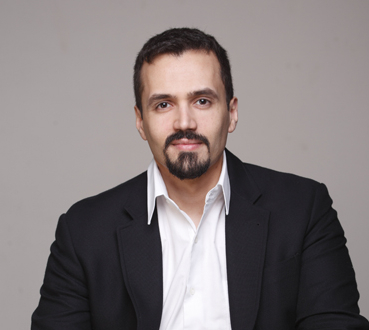By Daniel Kurtzer
President Barack Obama’s May 19, 2011 speech at the State Department — which evoked a highly negative reaction from Prime Minister Binyamin Netanyahu for what was said about the Middle East peace process — was actually designed to lay out American thinking regarding the so-called “Arab Spring”.
The president outlined traditional American interests in the region — counter-terrorism, stopping the spread of nuclear weapons, assuring the free flow of commerce, safeguarding Israel’s security and advancing the cause of Middle East peace — and said these would continue to be pursued. He associated the United States more directly with the forces of change in the region, thereby answering those critics who had complained that the president had been sitting on the fence, unable to choose between the stability provided by authoritarian friends and the democratic possibilities offered by the new agents of change. And Obama expressed sharp opposition to the repression and corruption of most Middle Eastern regimes, especially Libya, Syria and Iran, which are stifling democracy through coercive force.
As important as these elements of the speech were, the fact is that Obama also articulated a radical definition of change, a kind of political “liberation theology” that he says will guide US policy. Expanding on traditional themes of freedom and democratization, Obama established a new metric for evaluating change: what he called “self-determination” of individuals, or the “chance to make your life what you will”.
In more traditional definitions of self-determination, people are given the choice of government and governance under which they prefer to live. These definitions refer to the kind of states and governments that emerge from periods of change. In response to such acts of self-determination, other states make choices whether to confer or withhold recognition, provide assistance, and the like.
Obama’s definition of self-determination expands the universe immeasurably, for it seems to refer to individual choice. The US will measure change not just according to the decisions of peoples with respect to their governance, but also with respect to the ability of individuals to achieve their own aspirations within their societies. While on the one hand Obama acknowledged with humility the limited role of the United States in encouraging or leading change in the Arab world, he extended on the other hand the potential purview of US policy responses deep into Arab societies. Far from content with supporting a certain outcome in the exercise of self-determination, it appears that Obama’s America will judge acts of self-determination by the degree to which they achieve human dignity, universal rights and a vibrant civil society. The judgments to be made by US policymakers, therefore, will be far more intrusive and demanding than in any previous assessment of whether an act of self-determination by a nation has been undertaken in a free, fair and democratic manner.
The immediate consequences of Obama’s dramatic policy shift are likely to be modest. Obama in fact called for “free and fair elections”, “accountable and effective democratic institutions”, and “responsible regional leadership” — the stuff by which states traditionally assess whether an act of self-determination merits support. Obama will be watching carefully as the democratic transitions in Egypt and Tunisia unfold; whether the monarchies start to open up domestic politics; and whether the repressive republics can be defeated by the forces of change. In this respect, Obama outlined rather conventional US incentives and responses: US economic and political support geared to the specific requirements of each country. He tinged the idealism of the democratic dream with the realism that recognizes that sometimes hard national interests of the US will trump even a freedom agenda.
The longer-term consequences of Obama’s emerging philosophy of self-determination are far less clear. Take the following quite realistic scenario. A free, fair and democratic election in Egypt produces a coalition government in which the Muslim Brotherhood plays an important role. In formulating the policy guidelines of this coalition government, the Brotherhood demands initially modest restrictions on personal liberty, such as a dress code or some other behavioral requirement consistent with its interpretation of Islamic Sharia. This coalition government, charged also with amending the Egyptian constitution, convenes an assembly reflecting the popular vote that then seeks to incorporate such behavioral strictures into the very fabric of the new constitution. Where would these measures fit on the Obama scale of self-determination — as legitimate expressions of the majority will or as infringements of the individual’s right of self-determination through acts of state power?
Expressing support for the Arab Spring has been the easy part for the Obama administration. The hard part will be defining what this means under circumstances that challenge conventional American thinking.
Daniel Kurtzer, former US ambassador to Egypt and Israel, currently teaches at Princeton University’s Woodrow Wilson School of Public and International Affairs. This commentary is published by DAILY NEWS EGYPT in collaboration with bitterlemons-international.org



